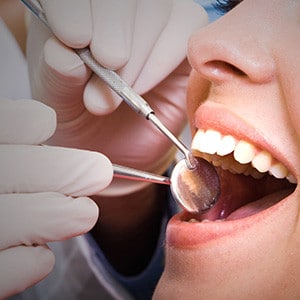
So You’re Getting Your Wisdom Teeth Removed
— July 21, 2015A Wisdom Tooth Survival Guide
As an oral surgeon in Garden Grove, we see a lot of patients worrying about wisdom teeth removal. For a quick guide to the pesky teeth in the back of your mouth and what to expect when you evict them, read on.
Before we even get into the actual removing of the wisdom teeth, you might be wondering — “why do we even have wisdom teeth in the first place?” If we don’t use them, and they can crowd your other teeth when they grow in — why did evolution somehow choose to let them stick around for the last 2,000 years? This is because prehistoric humans had much larger and stronger jaws. Because food was different in those days, early humans had extra teeth to help them chew foods like raw meet and plants. It’s also important to remember that early humans lost a lot of teeth! This made wisdom tooth a welcome addition to the jawline. However, with diets and dental health the way they are today, we don’t have the need or the room for our wisdom teeth.
“Does everyone have wisdom teeth?”
No. And if you happen to be an evolutionarily advanced reader, pat yourself on the back (But chances are you’re not — so read on). Your dentist will tell you if you have wisdom teeth or not. You will also learn if they are erupted or impacted.
“What’s the difference between erupted and impacted wisdom teeth?”
Erupted wisdom teeth are wisdom teeth that have broken through your gums. This can cause some discomfort. If there isn’t sufficient room in your mouth, an erupted wisdom tooth may cause crookedness and crowding, while also potentially damaging your jaw. Erupted wisdom teeth tend to be easier to remove than impacted wisdom teeth.
Because some people have smaller jaws, wisdom teeth have no place to grow. So instead of growing out through the gums, they grow inward and remain enclosed within your gum or jawbone. This can result in swelling, jaw stiffness, pain, and a general feeling of sickness due to the potential infection.
“What’s the wisdom tooth extraction process like?”
The process and difficulty for removing your wisdom teeth depends on where they are and what they are (impacted or erupted). This guide will not tell you exactly what to expect because everyone’s experience is a little bit different. When your wisdom tooth has fully erupted through the gum is extracted like any tooth. This is the best possible scenario. When the wisdom tooth is impacted however, the procedure gets a bit more complicated. When your wisdom tooth is still confined in your gums and attached to your jaw, it’s necessary to create an incision in the gums to remove the piece of bone attached to the tooth. In most cases, your care provider will slowly remove piece by piece to minimize the amount of bone that must be removed.
“Is there a chance I don’t need to remove my wisdom teeth?”
Of course! Not everyone needs to have their wisdom teeth removed. While many people choose to remove their wisdom teeth just in case and to prevent any future problems, not everyone has to. This is one of those situations where it’s a good thing to have a big mouth.
“Does it hurt?”
As most patients say, “It’s not too bad”. Before any wisdom tooth is removed, your dentist or oral surgeon will apply a local anesthetic, just like you would expect if you were reeving a filling for a cavity. On top of this, you might elect to use a sedative that will “put you under” for the entire process. Some patients with erupted wisdom teeth choose this option simply due to the drastically higher degree of comfort. Patients with impacted wisdom teeth almost always choose a sedative due to the extended length of the procedure.
“How long does it take to recover?”
After getting your wisdom teeth removed, recovery time can vary. This all depends on how difficult it was to actually remove the teeth. If your tooth was erupted and easy to take it, your recovery will probably be pretty simple. you’ll need to keep the empty socket clean and follow all of your oral surgeon’s instructions. But you should be back to normal within a couple days. If your wisdom teeth were severely impacted, your longer recovery time might get a little nudge from your doctor in the form of pain medication. And Remember….
If you elect to use a sedative during your procedure, be sure to monitor any camera activity from family and friends immediately after your procedure. We’ve all seen the videos [link or embed for some humor: https://www.youtube.com/watch?v=txqiwrbYGrs]


Leave a reply